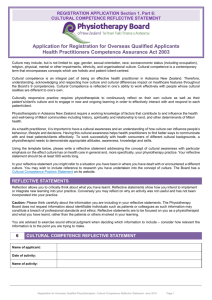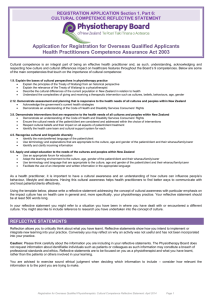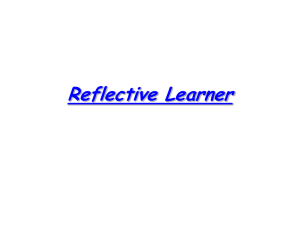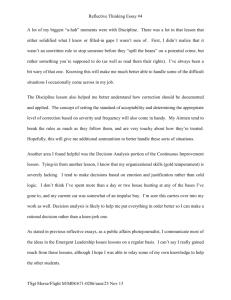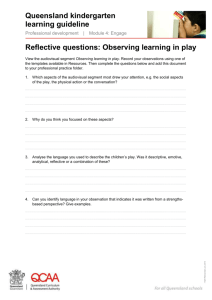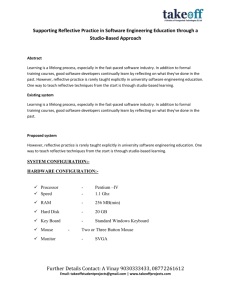Cultural Competence Reflective Statement
advertisement
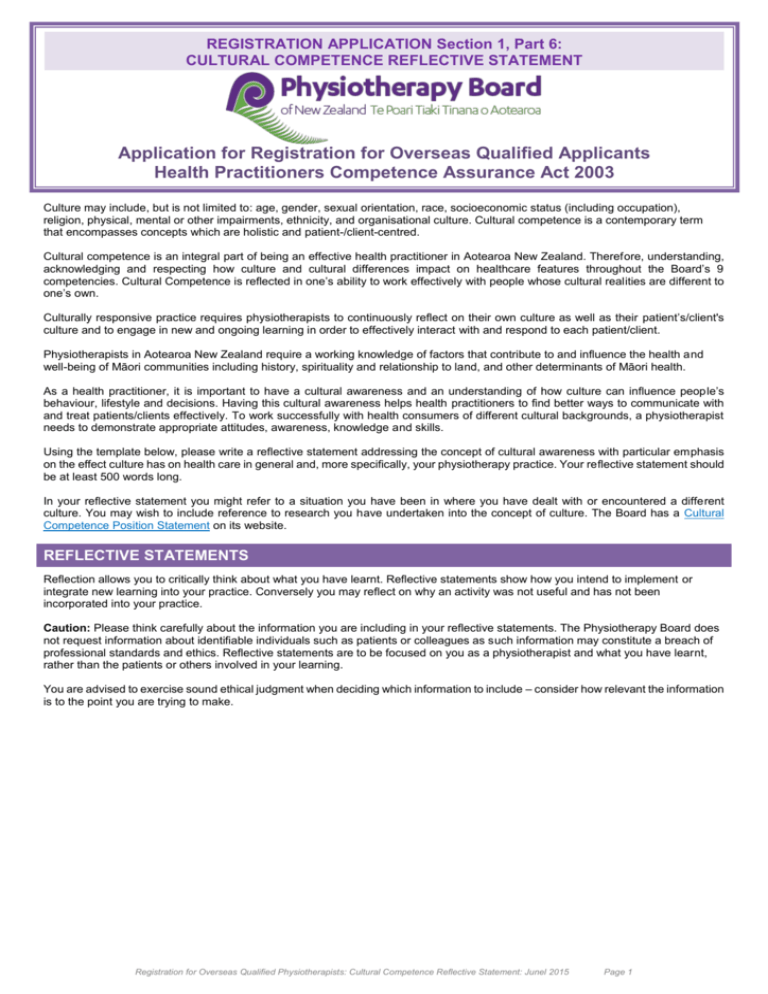
OUT THIS APPLI REGISTRATION APPLICATION Section 1, Part 6: CULTURAL COMPETENCE REFLECTIVE STATEMENT Application for Registration for Overseas Qualified Applicants Health Practitioners Competence Assurance Act 2003 Culture may include, but is not limited to: age, gender, sexual orientation, race, socioeconomic status (including occupation), religion, physical, mental or other impairments, ethnicity, and organisational culture. Cultural competence is a contemporary term that encompasses concepts which are holistic and patient-/client-centred. Cultural competence is an integral part of being an effective health practitioner in Aotearoa New Zealand. Therefore, understanding, acknowledging and respecting how culture and cultural differences impact on healthcare features throughout the Board’s 9 competencies. Cultural Competence is reflected in one’s ability to work effectively with people whose cultural realities are different to one’s own. Culturally responsive practice requires physiotherapists to continuously reflect on their own culture as well as their patient’s/client's culture and to engage in new and ongoing learning in order to effectively interact with and respond to each patient/client. Physiotherapists in Aotearoa New Zealand require a working knowledge of factors that contribute to and influence the health and well-being of Māori communities including history, spirituality and relationship to land, and other determinants of Māori health. As a health practitioner, it is important to have a cultural awareness and an understanding of how culture can influence people’s behaviour, lifestyle and decisions. Having this cultural awareness helps health practitioners to find better ways to communicate with and treat patients/clients effectively. To work successfully with health consumers of different cultural backgrounds, a physiotherapist needs to demonstrate appropriate attitudes, awareness, knowledge and skills. Using the template below, please write a reflective statement addressing the concept of cultural awareness with particular emphasis on the effect culture has on health care in general and, more specifically, your physiotherapy practice. Your reflective statement should be at least 500 words long. In your reflective statement you might refer to a situation you have been in where you have dealt with or encountered a different culture. You may wish to include reference to research you have undertaken into the concept of culture. The Board has a Cultural Competence Position Statement on its website. REFLECTIVE STATEMENTS Reflection allows you to critically think about what you have learnt. Reflective statements show how you intend to implement or integrate new learning into your practice. Conversely you may reflect on why an activity was not useful and has not been incorporated into your practice. Caution: Please think carefully about the information you are including in your reflective statements. The Physiotherapy Board does not request information about identifiable individuals such as patients or colleagues as such information may constitute a breach of professional standards and ethics. Reflective statements are to be focused on you as a physiotherapist and what you have learnt, rather than the patients or others involved in your learning. You are advised to exercise sound ethical judgment when deciding which information to include – consider how relevant the information is to the point you are trying to make. Registration for Overseas Qualified Physiotherapists: Cultural Competence Reflective Statement: Junel 2015 Page 1 6 CULTURAL COMPETENCE REFLECTIVE STATEMENT Name of applicant: Date of activity: Name of activity: What did you do? What did you learn? How did this activity affirm or influence your physiotherapy practice? Signature of Applicant: Date: Day/Month/Year Registration for Overseas Qualified Physiotherapists: Cultural Competence Reflective Statement: Junel 2015 Page 2
